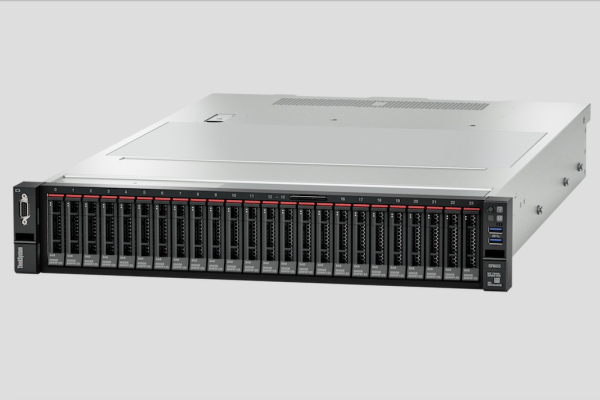Lenovo has introduced the Lenovo ThinkSystem SR635 and SR655 server platforms, powerful single-socket servers designed specifically for edge and data-intensive workloads.
As businesses are tasked with doing more with less, the new Lenovo solutions provide the performance of a dual-socket server at the cost of a single-socket.
These new additions to Lenovo’s expansive server portfolio are powered by next-generation AMD EPYC 7002 Series processors and were designed specifically to handle customers’ evolving, data-intensive workloads such as video security, software-defined storage and network intelligence, as well as support for virtualized and edge environments.
The result is a solution that packs power along with efficiency for customers who place a premium on balancing throughput and security with easy scalability.
Organisations are juggling business priorities with tight budgets. Lenovo’s new ThinkSystem SR635 and SR655 server platforms not only allow customers to run more workloads on fewer servers, but also offer up to 73% savings on potential software licensing, empowering users to accelerate emerging workloads more efficiently.
Additionally, customers can realise a reduction in total cost of ownership (TCO) by up to 46%. Further supporting these advances in workload efficiency and TCO savings are the ThinkSystem SR635 and SR655 servers’ 16 world records, including two for energy efficiency. The net result of all these enhancements is better price for performance.
The Lenovo ThinkSystem SR635 and SR655 provide more throughput, lower latency and higher core density, as well as the largest NVMe drive capacity of any single-socket on the market.
Beyond that, the new second Gen AMD EPYC processor based systems also provide a solid opportunity for the enablement of additional hyperconverged infrastructure solutions. This gives Lenovo the ability to offer customers vSAN and other certified nodes and future ThinkAgile software-defined appliances for simple deployment, management, and scalability.
Enabling smart cities
A new forecast from IDC estimates there will be 41.6 billion connected Internet of Things (IoT) devices, generating 79.4 zettabytes of data by 2025.
Much of the growth will be driven by IoT and video security technology. Lenovo’s new solutions are especially ideal for use cases where more computing power is needed in confined spaces, using less energy; an example of this is video security for public safety in smart city, campus and mass transit environments.
Governments and other public safety organisations are tasked with monitoring these environments, swiftly and accurately identifying potential threats and responding quickly.
The Lenovo ThinkSystem SR655 coupled with Pivot3’s software provides an edge computing video security solution capable of supporting up to 33% more video cameras per node than similar solutions.
Maximising the value of virtualisation
In virtualised environments, organisations often have to decide between maximum performance and security.
The hardware-assisted VM and memory encryption security features of the AMD EPYC 7002 Series processors combined with Lenovo ThinkShield solutions solve for this dilemma utilising an extra layer of security for virtualisation that isolates and minimises threats in the data centre.
Moreover, because the VM encryption resides in the hardware as opposed to the software or hypervisor, they do so without compromising on system performance.
Security is also of the utmost importance in video analysis and public safety scenarios. New features like a physical intrusion switch can detect and prevent tampering, allowing organisations to confidently run their security systems on Lenovo’s secure platforms.
With up to 64 cores per socket and increased performance, these new Lenovo solutions allow organizations to host more virtual machines per server, providing greater distributed computing capability and improved workload efficiency.


